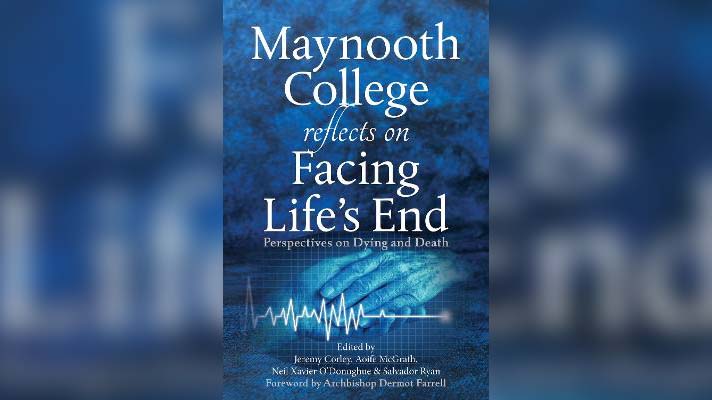Maynooth College reflects on facing Life’s End Perspectives on Dying and Death edited by Jeremy Corley and others, with a foreword by Archbishop Farrell €14.95 /£12.95)
This book represents, in my view, an interesting development in the teaching tradition of Maynooth, now of course a much larger and very different institution than it was back in the “traditional” 1950s.
When the college was founded originally at the end of the 18th Century by the British government it was intended to have an ameliorative effect on the difficulties arising in a new revolutionary situation across Europe. It used to be said that the first priests who came to teach in the college then espoused Jansenist ideas (or so I was told by the Jesuits who educated me, but then they may have been prejudiced against Port-Royal).
Truth
Whatever the truth about all that and its affect on the outlook of the Catholic Church in Ireland, it is undoubtedly true that for the next century and half “Maynooth” became a convenient term to describe the collective outlook of the Catholic Church in Ireland, at least in the matters of faith and doctrine. This is less true today, though the mixed establishment of Pontifical and National College has proved a great success over the decades. But there has been a sharp decrease in the number of clerical students.
Model
However, this book provides a model of what the theological part of the college frame-work can achieve. Rather than teaching priests alone and issuing stern reproofs to the population, the contributors to this book are reaching out to the nation as a whole.
They are not all academics, but are associates so to speak of Maynooth with well-established reputations in their fields. They are keeping in mind the needs of that important group that Virginia Woolf called “the common reader”.
Death is a challenging subject, but the essays spread across not only pastoral and theological reflections but social, emotional and medical, on how funerals can be conducted in their complicated ways of faith and no faith, the loss of a child or young person and perinatal death. It moves from the purely spiritual, philosophical and theological to the essentially practical, not neglecting the “liturgy” of the Irish Wake. What will interest is some of the more intimate aspects of Irish sociology.
Reflecting on aspects of death enlarges our ideas of life. There is a time in the lives of us all when a book of this kind will be found of comfort and great purpose. It can be whole heartedly recommended and an enlarging experience to read and absorb. It is a book which should be known, and widely used by all those involved in end of life care.


 Peter Costello
Peter Costello
